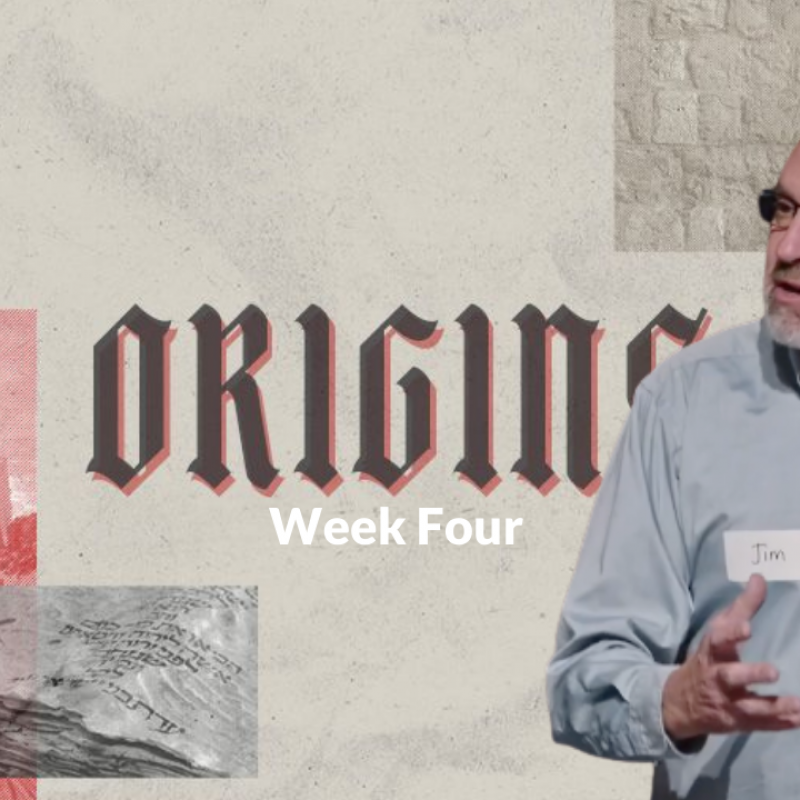Origins: Week 4

Origins: Week 4
Review: SCMD
Matthew 28:18-20 (NIV) Then Jesus came to them and said, “All authority in heaven and on earth has been given to me. Therefore go and make disciples of all nations, baptizing them in the name of the Father and of the Son and of the Holy Spirit, 20 and teaching the to obey everything I have commanded you. And surely I am with you always, to the very end of the age.”
- One of the last commands Jesus gave His disciples was not a suggestion.
Acts 1:8 (ESV) But you will receive power when the Holy Spirit has come upon you, and you will be my witnesses in Jerusalem and in all Judea and Samaria, and to the end of the earth.”
- The book of Acts is the story of the church starting in Jerusalem and growing to Rome. The church continues to progress today as we follow Jesus’ plan by spreading the gospel and making disciples.
- If you are a Christian, you are a disciple.
Matthew 4:19 (ESV) And he said to them, “Follow me, and I will make you fishers of men.”
- Discipleship is walking relationally with people through an intentional, relational process; from their conversion to growing in spiritual maturity.
- This requires humility, intentionality, discipline and time of both the discipler and the disciple-ee.
1. Discipling requires ______________.
Philippians 2:3-4 (NIV) Do nothing out of selfish ambition or vain conceit. Rather, in humility value others above yourselves, 4 not looking to your own interests but each of you to the interests of the others.
- It takes humility to…
___________________________________________________________
___________________________________________________________
Proverbs 15:22 (ESV) Without counsel plans fail, but with many advisers they succeed.
- We need discipling relationships in our lives to grow spiritually.
2. Discipling requires ____________________.
John 6:5-6 (NIV) When Jesus looked up and saw a great crowd coming toward him, he said to Philip, “Where shall we buy bread for these people to eat?” 6 He asked this only to test him, for he already had in mind what he was going to do.
- Jesus moved His disciples towards spiritual maturity by intentionally modeling and providing ministry opportunities for them to learn.
2 Timothy 2:1-2 (ESV) You then, my child, be strengthened by the grace that is in Christ Jesus, 2 and what you have heard from me in the presence of many witnesses entrust to faithful men, who will be able to teach others also.
- Paul gave ministry to Timothy, not for him to keep to himself, but for him to pass on to others. This is how discipleship works. What are you passing on?
3. Discipling requires ________________________.
John 15:5 (NIV) “I am the vine; you are the branches. If you remain in me and I in you, you will bear much fruit; apart from me you can do nothing.”
- You cannot give what you don’t have. We are to make disciples of Jesus, not ourselves.
Luke 9:23 (NIV) Then he said to them all: “Whoever wants to be my disciple must deny themselves and take up their cross daily and follow me.”
- Discipling requires discipline – dying to our flesh.
- Whether you are discipling someone or being discipled, you are being observed. What you allow into your life, you will pass on.
- We need to discipline ourselves to be with Jesus so that we can do for Him.
4. Discipling requires ___________.
Investing in people is hard. All of us come with complex issues that are unique. All of us are in different stages of maturity. All of us learn at different paces. Put simply, we are messy because of sin.
- Making time to respond to discipling opportunities will reap a harvest.
- Without time spent invested in discipling relationships, our spiritual growth and kingdom impact will be stunted.
- There is no ‘quality’ without ‘quantity’.
Ephesians 5:15-17 (NIV) “Be very careful, then, how you live—not as unwise but as wise, making the most of every opportunity, because the days are evil. Therefore do not be foolish, but understand what the Lords will is.”
- Thought: You don’t have to be perfect to disciple someone, you just need to care and invest time.
- Reality: Jesus’ disciples failed miserably at times and so will you. The question is, will you try?
Application:
- How will you humble yourself to disciple someone or to be discipled by someone?
- What intentional steps will you take to be discipled? What intentional steps will you take in discipling another person?
- How can you strengthen abiding in Christ, to have greater spiritual impact in the lives of others?
- Where will you reprioritize your time to make room to be in a discipling relationship?
- What people has God placed in your life that may present a discipleship opportunity?
- Remember, if you have children, they are your responsibility to disciple.
Small Group Discussion:
1 Kings 19:19-21, 2 Kings 2:1-15 (Elisha succeeds Elijah); Matthew 28:19-20; 2 Timothy 1:13; 2 Timothy 2:2
Questions:
- Why do you think Elijah kept asking Elisha to stay behind?
- Being tested reveals what we are committed to. How have you been tested recently? What did you learn about yourself?
- What area of your life do you wish you were more committed to?
- How did Elisha model his life after Elijah?
- What qualities have you observed in others that you would like to make a part of your own life?
- What does it look like to disciple someone?
- How can you encourage others to serve the Lord, particularly when you’re not there to help them?
- What do you hope someone will take from your life and reproduce with others?
